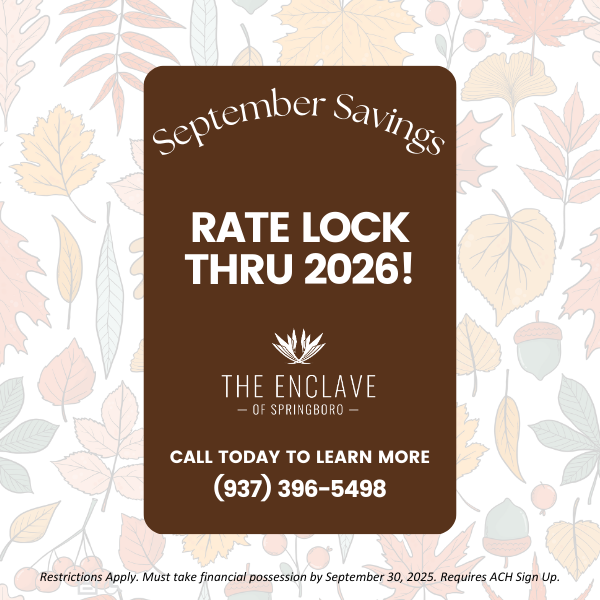Caring for a loved one can sometimes be insufficient, especially when professional care can provide a better quality of life. However, choosing the right care for your aging loved ones can be overwhelming as senior living communities offer multiple options.
Assisted living includes help with daily living activities, while memory care caters to those with cognitive impairments. Each provides unique benefits tailored to specific needs, making it crucial to understand their differences to help you make an informed decision for a loved one.
What Is Memory Care & Assisted Living?
Navigating the landscape of senior care can be challenging for families. First, it’s essential to differentiate between memory care and assisted living. Both support older adults, but they cater to different needs.
Memory care focuses on individuals with Alzheimer’s disease or other forms of dementia, offering a structured environment with specialized care. Assisted living, on the other hand, helps older adults who need assistance with daily activities like bathing, dressing, and medication management but do not require constant medical supervision.
Understanding these distinctions is vital for providing the appropriate care tailored to your loved one’s needs. Let’s explore the key differences between memory care and assisted living to help you make the right choice.
Key Differences in Care Needs & Services
Memory care and assisted living offer distinct services aimed at different care requirements. Memory care programs are specially designed for residents with cognitive impairments, providing a secure environment. Staff in memory care are trained to handle the unique challenges associated with dementia so residents receive the appropriate support.
In contrast, assisted living focuses on providing help with daily tasks while promoting independence. They offer various services, including housekeeping, meal preparation, and recreational activities, allowing residents to maintain a high quality of life.
Physical Environments & Safety Measures
Safety is a top priority in memory care and assisted living, but the approaches differ based on residents’ needs. Memory care is designed with secure layouts to minimize confusion and prevent wandering. These communities often feature enclosed outdoor spaces, color-coded hallways, and easily navigable floor plans to enhance residents’ safety and comfort.
Assisted living communities also prioritize safety but more freedom and independence. They provide emergency call systems, handrails in hallways, and accessible bathrooms for residents’ well-being. The physical environments in assisted living are designed to support mobility and independence, allowing residents freedom while staying safe.
Staffing & Training Differences
Staff qualifications and training in memory care and assisted living facilities play a crucial role in the quality of care provided. Memory care staff undergo specialized training to understand the complexities of dementia and Alzheimer’s disease for compassionate and effective care. They are skilled in managing behavioral changes, administering medication, and offering support tailored to each resident’s cognitive abilities.
Assisted living staff are highly trained and focus on assisting with daily activities and promoting residents’ independence. They help manage day-to-day living, personal hygiene, meal preparation, and medication management, meeting residents’ needs without compromising their autonomy.
Daily Life & Activities

Memory care offers structured schedules with activities tailored to cognitive abilities, such as memory games, music therapy, and sensory stimulation. These activities aim to maintain cognitive function and provide a sense of familiarity and routine.
In assisted living communities, residents enjoy a wider range of activities that promote social engagement and physical well-being. These may include fitness classes, arts and crafts, outings, and social events. The goal is to encourage an active lifestyle and foster a sense of community, helping residents maintain their independence and overall happiness.
Cost & Financial Considerations
Costs can vary widely based on location, level of care, and amenities offered. Memory care tends to be more expensive due to the specialized care and secure environments provided. Assisted living is generally more affordable, with costs influenced by location, services, and accommodations.
Some communities offer tiered pricing based on the level of care required, allowing families to choose a plan that fits their budget. Understanding the financial implications and exploring available support options can ease the burden so your loved one receives the care they need.
Making the Right Choice for Your Loved One
Choosing between memory care and assisted living requires a thorough assessment of your loved one’s needs and preferences. Start by evaluating their cognitive and physical abilities, daily routines, and overall health. Consider their social and emotional well-being and their long-term care requirements.
Visiting potential senior communities can provide valuable insights. Pay attention to the environment, staff interactions, and available amenities. Ask questions about care plans, staff qualifications, safety measures, and resident activities. Creating a checklist of essential factors can help streamline the decision-making process for your loved one.
Explore Options at The Enclave of Springboro
Choosing between assisted living and memory care requires assessing your loved one’s needs and preferences, understanding the key differences in care settings, exploring communities, and seeking professional advice. Take the time to explore your options, ask questions, and trust your instincts.
Contact The Enclave of Springboro for personalized guidance and support in navigating this important decision for a loved one.











